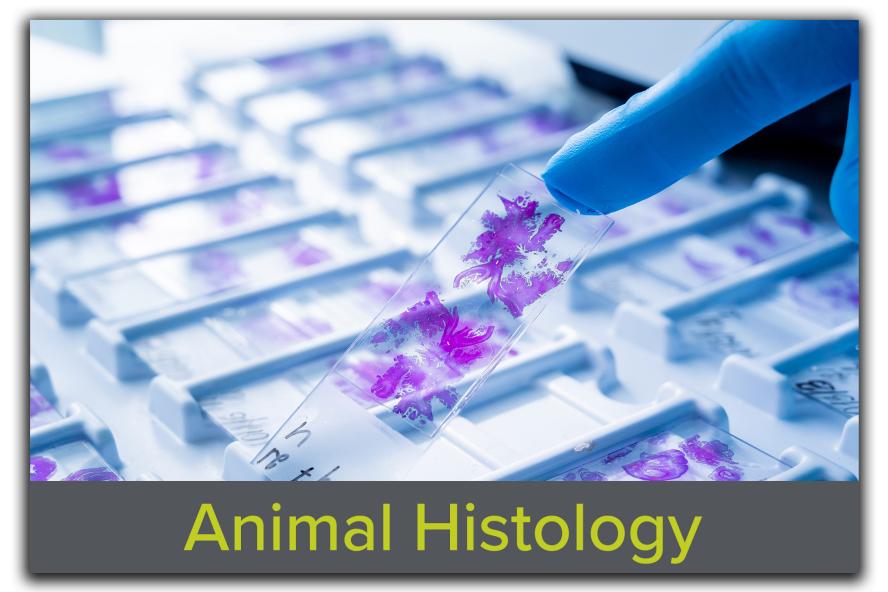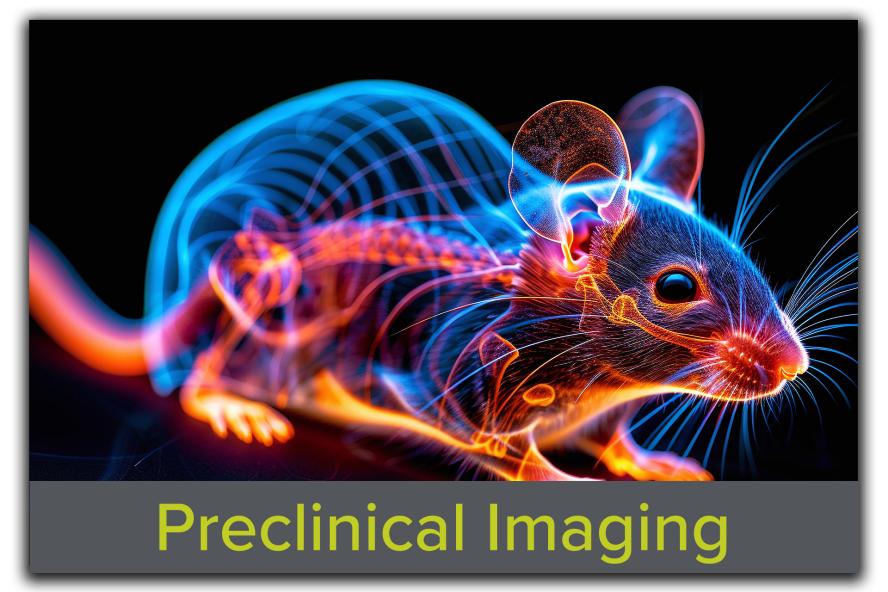Revealing Insights Advancing Research

Discover More About Our Pathology Services
Tufts Comparative Pathology (CPS) is a full-service, multi-discipline, diagnostic and research pathology laboratory offering clinical and anatomic pathology services. Complete anatomic pathologic examinations including gross and histopathologic analyses in a variety of animal species are performed by an American College of Veterinary Pathologists (ACVP) board-certified veterinary anatomic pathologist.
Tufts CPS is located on the Boston campus of the Tufts Health Science Center. Our services are available to Tufts University, Tufts Medical Center and external investigators. We are dedicated to helping you achieve your research goals in the most efficient and cost-effective way regardless of your experience level with histology or pathology services.
Our Comparative Pathology Service includes: Tissue Collection, Gross necropsy reports, Phenotyping of genetically engineered mutant mice, Rodent embryonic lethality investigation, Diagnostic cases, Training in gross and microscopic anatomy, Budget preparation assistance for grants, Assistance developing the pathology section of grant applications, Internal review of pathology papers prior to submission, Photomicrographs, Clinical Pathology and many more.
-
Tufts Comparative Pathology Services provides Tufts University, Tufts Medical Center, and external researchers with expertise not only in pathology but in animal anatomy, physiology, and comparative medicine.
Please consult with our pathologist, Lauren Richey, if you could use:
- Project consultation during study design
- Assistance with selection of an animal model
- Information on known limitations of the chosen model
- Help determining experimental timepoints or endpoints based on knowledge of pathophysiology
- Assistance developing methods to address your specific pathology objectives
- A review of the normal histology of the organs you study
- A literature review of the pathology you might expect to find in your study
- Evaluation of need for special stains or immunohistochemical stains to address your pathology objectives
- A first look through a double-headed microscope with a veterinary pathology to see if the pathology you expect to find is there
- Development of a scoring system appropriate for your individual study
- Concise morphologic diagnoses using standardized nomenclature
- Training in lesion assessment
- Help recognizing incidental or background lesions that are not related to your experimental factors
- Photomicrographs or gross photos
- Comparison of the findings in your model to human disease
-
Comparative Pathology Services (CPS) can perform a limited number of tests in house, such as hematocrit, urinalysis, and blood glucose as well as making and staining blood smears. For other clinical pathology requests, CPS sends samples via overnight delivery to labs that have well established practices for validation of tests for research animal species.
If you have a need for any hematology, serum clinical chemistry, or cytology, our staff will recommend a reference lab. We highly recommend using a laboratory that specializes in animal, rather than human, blood samples. We can also provide the appropriate test codes and will package and ship your samples according to IATA/DOT requirements.
Common questions we can assist with:
- Selecting the most appropriate tests for your study
- Selecting which blood tubes to use (we often have microtainer tubes available free of charge)
- Guidance on optimal blood collection techniques (hematology labs will refuse samples if there are visible clots in the samples)
- How to get the most data out of tiny rodent blood volumes
- How to establish normal reference values to use in your study
- How to make optimal blood smears
-
Just as in humans and domestic animals, research animals can develop sporadic illness, diseases related to aging, tumors and experience congenital diseases and unexpected death. Tufts CMS monitors the health of all animals under our care daily, and actively monitors for and excludes infectious diseases that could cause harm to the animals or affect your research study.
If you have an occurrence of unexpected morbidity or mortality in your research animals, please contact Tufts CMS Veterinary Services immediately for veterinary care. Gross diagnostic necropsies approved by the veterinary staff are performed for the cost of supplies as part of the Tufts CMS health monitoring and disease surveillance program. Following gross necropsy, the pathologist will give you a cost estimate for optional histology or ancillary testing recommended for further diagnosis if necessary.
Contact the pathologist, Lauren Richey, to initiate a diagnostic pathology service request.
-
Tufts Comparative Pathology Services can provide the following to assist you in determining the phenotype of a genetically engineered mouse:
- Complete phenotype pathology screen (first tier evaluation).
- In depth evaluation of organ systems found to be abnormal in screens (second tier evaluation).
- Limited phenotypic screening of one or more organs or organ systems.
- Knowledge of lesions common in the background strain and significance to your model.
- Phenotyping plan design.
- Necropsy, tissue collection, and documentation of gross changes.
- Optimal tissue trimming, slide production, and histologic examination of tissues.
- Training in phenotype evaluation of organ systems.
- References for general anatomy, microanatomy, and pathology assessment most applicable to your project.
Please contact Lauren Richey to initiate a phenotyping project consultation.
-
Refer to the Requests page for submitting forms and check out the CMS Library for more info on Policies, Guidelines and SOPs.



